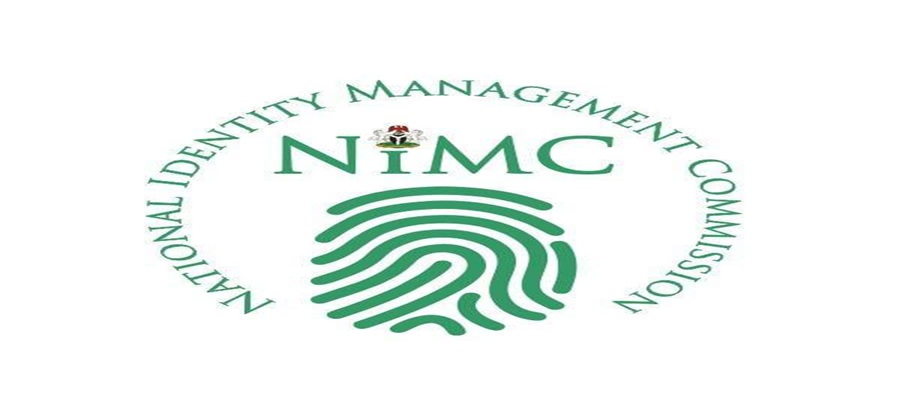Telecom
5G Core, Evolve from 4G to 5G Cost Efficiently

By Said Zantout
As 5G picks up speed, the new networks will co-exist with the existing 4G ones in the coming years. For Communication Service Providers (CSPs), flexibility in balancing cost-optimized versus performance optimized network deployment is crucial to maximize profitability and take advantage of the wide range of business opportunities.

Said Zantout, Ericsson
Basically, it means they need to have the option to migrate to 5G in their own time and in alignment with their business needs.
The journey to 5G Core is not simple, though, and will imply a technology shift with the adoption of a new 3GPP defined network architecture (service-based architecture) and new network functions built on cloud native technology. With service providers’ needs and concerns in mind we have developed the dual-mode 5G Core solution.
Dual-mode 5G Core provides that kind of desired control by combining Evolved Packet Core (EPC) and 5G Core network functions into a common cloud native platform. CSPs can get the most out of cloud native, microservices and user plane performance by implementing the dual-mode core solution as the best way for efficient control of Total Cost of Ownership (TCO) while smoothly migrating to 5G.
As hard as it sounds to achieve challenging business and operational goals while migrating to a 5G Core, with dual mode it is possible.
If we look at Ericsson’s dual mode 5G Cloud Core solution, it is fully based on cloud native principles, with software architecture being based on microservice technology.
This is to ensure that the underlying infrastructure will have better capacity and elasticity, which in turn will offer high levels of orchestration and automation for operational efficiency.
Dual-mode solution enables CSPs to manage one network instead of two and add programmability to their network. The decomposition of software into microservices facilitates a fast, low-cost method of introducing new services on a small scale.
At the same time, it supports easy and effective scaling of services from hundreds of users to millions and this is exactly how CSPs can address new business opportunities or pursue those that have been difficult to address until now.
While no journey to a future core will be alike, what applies to every CSP is the need to have a holistic view on cost. A report by Ericsson titled “Dual-mode 5G Cloud Core: TCO benefits” highlights that substantial saving is possible in various areas of dual-mode cloud native operations, including:
— Up to 20 percent of capex in Core network infrastructure
— Up to 15 percent savings in database infrastructure
— 70 percent OpEx savings in configuration of policies
— Up to 80 percent cost savings in network integration
— More than 60 percent reduced OpEx for software upgrades
As 5G evolves, dual mode core supports both Evolved Packet Core (EPC) and 5G core, combining both functionalities and offering a uniform operational maintenance that is able to scale with the speed that 5G use cases demand.
Migrating to a 5G NR SA and 5GC network is crucial for our customers’ success, enabling them to unlock key 5G functionalities like faster speeds, ultra-low latency and advanced network slicing – allowing our customers to support increasingly complex 5G use cases such as automated manufacturing, remote healthcare and connected vehicles.
This migration will also allow service providers to simplify operations and service agility, enhance user experience with better coverage and improve network capabilities.
To secure new 5G revenue streams while continuing to support existing 4G customer base, service providers can begin by introducing 5G New Radio (NR) non-standalone (NSA) and run both generations side by side supported by the Evolved Packet Core while migrating to 5G NR standalone (SA) and a 5GC network.
At Ericsson, we have been learning from previous technology shifts. As we enter 5G era with all its complexity and unknown opportunities, we know the value of migrating networks at own pace and dual-mode 5G Cloud Core solution provides enhancements that enables this vision.
By implementing the dual-mode solution, service providers will have more control to migrate to 5G on their own pace and in alignment to their business needs.
Said Zantout is Head of Solution Area OSS, Core and Cloud at Ericsson Middle East and Africa.
Telecom
Terra Moves to Expand in African Drone Sector, Secures $22m Funding

Olugbenga Agboola, Flutterwave CEO has joined a $22 million funding extension for Nigerian defensetech start-up Terra Industries as Africa’s fast-growing drone and security technology sector begins to attract capital far beyond traditional venture circles.

The round was led by Lux Capital, with participation from Agboola through Resilience17 Capital and returning investors including 8VC and Nova Global.
It follows an $11.75 million raise just weeks earlier, bringing Terra’s total funding to $34 million as the company accelerates expansion into high-risk security markets.
Terra, founded in 2024 by 24-year-old chief engineer Maxwell Maduka and CEO Nathan Nwachuku, builds autonomous drones and surveillance systems designed to protect critical infrastructure such as energy facilities, logistics corridors and industrial sites. The startup says it is already safeguarding assets worth billions of dollars while securing early federal and commercial contracts.
Agboola’s involvement highlights a broader shift in African tech investment patterns. While fintech has long dominated venture flows, escalating infrastructure sabotage and terrorism threats have elevated demand for locally developed security hardware.
“Nigeria’s drone ecosystem is rapidly evolving from hobbyist and mapping use cases toward industrial monitoring, border surveillance and energy protection, areas increasingly seen as foundational to economic stability.
“This is about backing infrastructure security at scale. Africa’s growth depends on resilient systems that protect critical assets,” said Agboola.
Terra CEO Nwachuku is adamant that locally engineered systems are better suited to African operating conditions. “We are building tools designed for the realities on the ground. Security technology should not always be imported when local innovation can respond faster and more effectively,” he stated.
Lux Capital partner Brandon Reeves underlined that the investor appetite, which has drawn fintech heavyweight interest such as Agboola, reflects rising cross-sector confidence in African defense technology as a commercial category. “Security is a prerequisite for economic growth,” he said.
“As Terra ramps production and expands regionally, its funding milestone illustrates a wider transformation. Drone and autonomous security platforms are no longer peripheral experiments but emerging pillars in Africa’s technology landscape, where fintech leaders and venture capital converge around safeguarding the infrastructure powering the continent’s next growth phase,” said Reeves
Telecom
Temu Assures Compliance Amid Nigeria Data Privacy Probe

Temu, the global e-commerce platform expanding in Nigeria, has officially addressed an inquiry from the Nigeria Data Protection Commission (NDPC) over alleged data privacy violations, confirming its commitment to compliance with the Nigeria Data Protection Act (NDPA) 2023.

Temu
The company’s response follows NDPC’s investigation into Temu’s data processing practices.
In a statement to Nigeria CommunicationsWeek, Temu stressed its dedication to local and international data protection standards, noting ongoing communication with the regulator. “At Temu, protecting user privacy and data security is a top priority. We are committed to complying with applicable laws and regulations in our data practices,” the statement read.
Temu further affirmed: “We can confirm that Temu has received the inquiry and is engaging with the Commission. We will continue to engage in open and constructive dialogue with the NDPC to address any questions or concerns.”
Under Dr. Vincent Olatunji’s leadership, NDPC has ramped up scrutiny of foreign digital platforms to safeguard Nigerian citizens’ personal data—from contact details to financial information—ensuring transparent and secure handling. For e-commerce giants like Temu, managing vast consumer data volumes demands strict regulatory alignment to sustain operations and trust in Africa’s biggest economy.
Industry observers view Temu’s proactive stance as a savvy bid to ease tensions, mirroring Nigeria’s firm handling of platforms like X (formerly Twitter) and fintechs. This engagement underscores NDPC’s rising clout, compelling investors and foreign entrants to prioritise data compliance costs.
Nigeria CommunicationsWeek sees Temu’s approach as a model for global retailers eyeing Nigeria’s booming digital retail sector through 2026.
Telecom
NIMC Rolls Out WorkflowPro for Paperless Correspondence

National Identity Management Commission (NIMC) has deployed WorkflowPro as its official platform for the digital submission and management of correspondence.

NIMC
Kayode Adegoke Phd, Head, Cooperate Communications of NIMC said this in a press statement on Tuesday, 17th February, 2026, pointing out that this was “In furtherance of President Bola Ahmed Tinubu’s Renewed Hope Agenda and the Federal Government’s commitment to institutionalizing a paperless public service.”
According to the statement, “The adoption of WorkflowPro marks NIMC’s formal transition to a paperless operating environment and reflects the Commission’s resolve to strengthen governance, improve administrative efficiency, and standardize records management in line with approved public sector reforms. The platform provides a secure, structured, and traceable system for managing both internal and external communications, thereby enhancing accountability and operational transparency.
“Under the new framework, all external correspondence to NIMC will be processed electronically through WorkflowPro. The system enables end-to-end tracking of submissions, accelerates internal routing and response timelines, and ensures secure electronic archiving of official records. This approach eliminates the risks associated with manual handling of documents while reinforcing compliance with established information management standards.”
Adegoke added that “The implementation of WorkflowPro is consistent with the Federal Government’s Enterprise Content Management (ECM) policy, which mandates the digitization of official records and the elimination of physical file movements across all Ministries, Departments, and Agencies (MDAs) .
“Accordingly, all external correspondence addressed to the National Identity Management Commission must be submitted via the NIMC WorkflowPro platform, accessible through the official portal link or by scanning the designated QR code:
Portal Link:https://workflowpro-nimc.com/Submit . Correspondence
To support effective implementation, NIMC has approved a 30-day transition period from the date of this announcement, during which stakeholders are expected to acquaint themselves with the new process. Upon the expiration of this period, the Commission will discontinue the acceptance of manually submitted letters and paper-based correspondence.
“WorkflowPro was developed by NIMC’s in-house technical team under the directive of the Director-General/Chief Executive Officer, Engr. (Dr.) Abisoye Coker-Odusote. The platform forms part of a broader institutional reform agenda aimed at strengthening the security of official communications, reducing administrative delays, and entrenching digital governance within the public service.
“The National Identity Management Commission enjoins all stakeholders to take note of this policy directive and ensure full compliance.”

 General News3 days ago
General News3 days agoJumia Targets Break-even in 2026 After Strong Q4 Surge

 General News3 days ago
General News3 days agoNigeria’s Banks Race to Meet CBN Recapitalisation Deadline Amid Verification Push

 General News3 days ago
General News3 days agoBOI, MTN Foundation Unveil N1Bn Fund for Women Entrepreneurs

 General News3 days ago
General News3 days agoUBA Unveils Diaspora Platform to Connect Global Africans with Investment, Wealth Opportunities

 News2 days ago
News2 days agoAfrican Leaders Highlight Africa’s AI Ambitions

 E-Financial3 days ago
E-Financial3 days agoNo VAT on Land, Buildings and Rent Under New Tax Law — Oyedele

 E-Financial3 days ago
E-Financial3 days agoCBN Slams Up to N10m Fine on Banks and Cheque Printers for Security Breaches

 General News2 days ago
General News2 days agoNDPC Orders Probe into Temu over Alleged Data Privacy Breaches


























